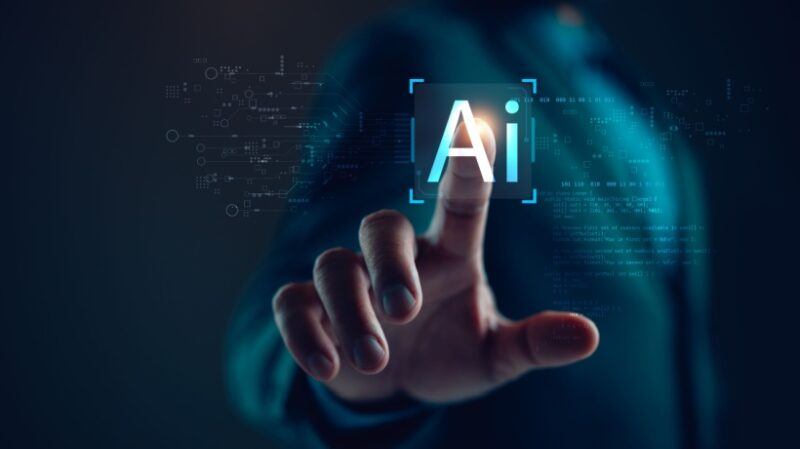

Transforming Your Learning Experience With Gen AI
As we move into 2025, Learning and Development (L&D) professionals are experiencing a seismic shift in how training, upskilling, and continuous learning programs are delivered. At the heart of this transformation is generative AI—an evolving technology that is dramatically reshaping the L&D landscape. With its potential to create personalized learning experiences, streamline content development, and provide real-time support, generative AI is empowering organizations to upskill their workforce more efficiently than ever before. Here’s how this technology is revolutionizing L&D in 2025.
Generative AI And L&D: Trends In 2025
Personalized Learning At Scale
One of the most significant contributions of generative AI is its ability to deliver personalized learning at scale. In the past, individualized learning paths were resource-intensive and difficult to maintain for large organizations. However, generative AI can now analyze data from various sources, such as employee performance metrics, job roles, and learning preferences, to automatically create tailored learning experiences.
AI-driven platforms can generate personalized content, from microlearning modules to interactive simulations, that adapt in real time to a learner’s progress. This ensures that employees receive the right training at the right time, reducing time spent on irrelevant material and enhancing engagement. For instance, an AI-powered system can detect when an employee is struggling with a particular concept and immediately generate additional exercises or resources to address the gap.
- Example in action
In 2025, leading organizations like IBM and Microsoft are already utilizing generative AI to personalize training programs for their employees. These programs are dynamically adjusting to individual skill levels, ensuring more efficient and targeted learning pathways that help employees stay competitive in rapidly changing industries.
Streamlining Content Creation And Maintenance
Creating training content has traditionally been a time-consuming process that required significant human input. However, generative AI tools are revolutionizing content creation by automatically generating learning materials, including text, video, and interactive content, based on predefined learning objectives.
By 2025, L&D teams are increasingly using generative AI to develop and update training materials quickly and at scale. These systems can pull from a vast array of existing company data, industry trends, and real-time information to create relevant and up-to-date content, minimizing the need for manual intervention. This automation frees up L&D professionals to focus on more strategic tasks, such as designing learning experiences and assessing overall program effectiveness.
Generative AI also simplifies content maintenance. AI algorithms can automatically review training modules and flag outdated or redundant information, ensuring that employees always have access to the most current and accurate resources.
- Case study
In the pharmaceutical industry, companies like Pfizer are leveraging generative AI to update their compliance training content as regulations change. By using AI, these organizations ensure their training remains compliant with the latest standards without requiring large-scale manual updates.
Enhancing Learning In The Flow Of Work
Learning in the flow of work is a growing trend that aligns perfectly with the capabilities of generative AI. Rather than pulling employees away from their tasks for formal training sessions, generative AI enables real-time learning interventions that integrate seamlessly into the workday. Whether it’s offering on-the-spot support or generating step-by-step guides for complex tasks, AI tools make learning accessible and immediate.
For example, AI-powered chatbots can provide employees with instant answers to their questions, suggest relevant learning modules based on current tasks, or generate practice exercises. This real-time support allows employees to solve problems and acquire new skills without interrupting their workflow.
In 2025, generative AI is allowing companies to move away from traditional learning models toward more agile, on-demand systems. This shift not only improves productivity but also increases learner engagement, as employees can immediately apply what they learn to real-world tasks.
- Real-world example
Retail giant Walmart has integrated generative AI into its employee training programs, providing workers with instant access to learning modules via mobile devices while they’re on the shop floor. This helps employees solve customer service challenges in real time, improving both their skills and the customer experience.
The Future Of AI-Driven L&D: What Lies Ahead?
As generative AI continues to evolve, its role in L&D will only expand. One key area of future development is AI-driven adaptive learning systems, which will become even more sophisticated by continuously refining learning paths based on performance data, feedback, and changing job requirements. These systems will not only create personalized learning experiences but will also predict future skill gaps, allowing organizations to proactively address training needs.
Furthermore, advancements in Natural Language Processing (NLP) will lead to more conversational and intuitive AI interactions, making it easier for employees to seek help, ask questions, and engage with learning content. Virtual tutors, powered by NLP, could become a staple in L&D programs by 2025, providing human-like guidance and mentoring.
Generative AI is also set to play a crucial role in diversity, equity, and inclusion (DEI) initiatives by helping L&D teams create unbiased and culturally relevant content that resonates with diverse workforces. AI systems can be trained to identify and eliminate bias in training materials, ensuring a more inclusive learning experience.
Conclusion: Generative AI As A Game Changer For L&D
Generative AI is no longer just a futuristic concept—it’s an essential tool shaping the future of Learning and Development in 2025. By enabling personalized learning at scale, streamlining content creation, and supporting learning in the flow of work, AI is revolutionizing how organizations approach employee development. As L&D teams embrace these new capabilities, they’ll be better positioned to meet the evolving needs of the modern workforce, driving productivity, engagement, and long-term success. To stay ahead of the curve, L&D professionals must continue exploring and integrating generative AI solutions, ensuring that they not only respond to today’s challenges but also proactively prepare for the future.